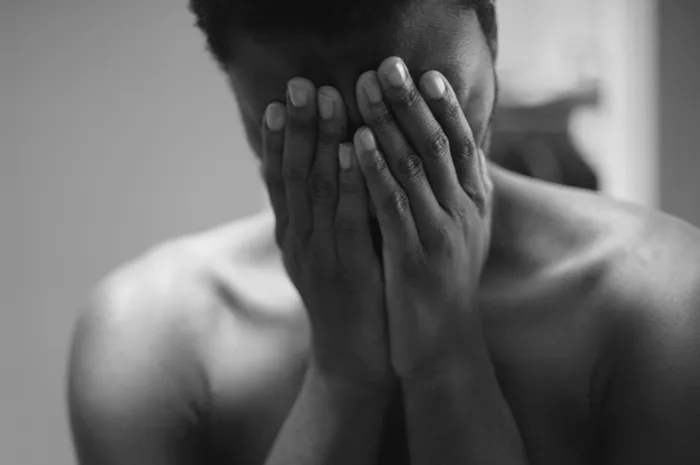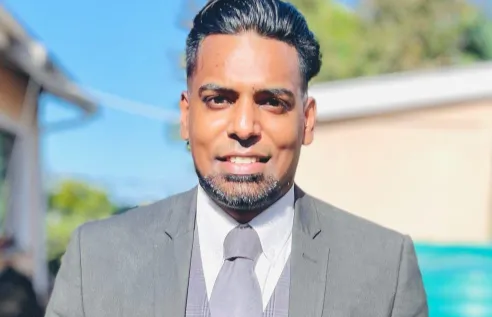
In most cases, most episodes are caused by stress, anxiety, lack of sleep, or excessive alcohol consumption. Picture: Pixabay
Image: Pixabay
THE day Sizwe Gumede died in my car changed me forever.
In July 2021, during the “July Unrest,” Sizwe, my administrator and confidant, died of a severe asthma attack. We were racing to RK Khan Hospital, less than two minutes away. He had been refused a R1 Prednisone tablet earlier that day. I turned to check on him, saw his fingers flicker, then felt him collapse, dead weight, against me.
At the hospital, doctors declared him dead. I insisted they try again. How could someone who minutes ago was arranging a meeting now be gone?
My hands stayed on the steering wheel. I could not cry. As a South African man, I had been taught to soldier on, swallow pain, bury trauma, and always be strong for others.
Minutes later, I chaired the meeting Sizwe had prepared, focused on preventing violence and easing tensions, the same tensions that led to the pharmacist refusing him service. Then I arranged his memorial and began building a movement so that his life and death would not be forgotten.
I did not mourn that day. Instead, I learned how deadly silence can be.
Years earlier, after the 2019 KZN floods, I was thigh-deep in mud digging out the bodies of a mother and her child. Their faces still haunt me.
In many Indian and black families, survival shaped every lesson, leaving little room for emotional expression. Boys are taught to “toughen up” before they understand what softness means.
We carried fear like invisible armour. We hid pain behind humour, overwork, or avoidance. We were never taught the language of vulnerability.
The consequences are fatal. Suicide claims around 14 000 lives annually in South Africa - 75% are men. It’s the second leading cause of death among those aged 15 to 29. Why? Because we were never taught how to heal. Silence buries men.
According to SAPS wellness data, more than 200 officers died by suicide in five years, many citing emotional overload. During Covid-19, half of South Africans reported financial stress, but 60% said they had no one to talk to. Emotion is not the enemy.
As a councillor, I carried countless expectations, fixing potholes, mediating crises, housing the poor, comforting the grieving. My phone once logged 507 calls in a day, all asking for help. Yet I ignored the help my own soul needed.
When community leader Doreen Manzi was shot dead, I was among the first on scene. I realised that emotional fatigue had disguised itself as discipline. Resilience without rest becomes ruin.
Even when I buried my dog Daisy, I wiped my tears and presented community plans an hour later. That disconnect, that mask, is trauma in action.
Then came 2020.
Depression and anxiety rose globally by 25%.
Siya Kolisi once said: “There were days I felt like I was losing my mind.”
But he reached for help and lifted others. Healed men build nations.
A WHO-HSRC study found that during lockdown, one-third of South Africans were depressed, 45% fearful, and 29% deeply lonely. We learned to Zoom, but did we learn how to feel again?
Physical distancing severed our lifelines, touch, gatherings, shared laughter. For men, the spaces to release emotion vanished. Virtual connection filled the void, analogue pain remained.
Trauma is not spiritual failure, it is neurochemical disruption.
South African men are four times more likely to die by suicide than women, yet mental-health funding remains under 5% of health budgets. Trauma lowers serotonin and dopamine, the brain’s mood and motivation regulators. When men withdraw or lash out - it is not weakness. It is chemistry. Misalignment.
One in six adults battles anxiety or depression. Over 60% show PTSD symptoms. Many clinics have no psychiatrist at all.
As my doctor, Dr James Govender, says: “People do not need another restaurant. They need space. Nature. Walks in the park. We talk of national health insurance, but where is our mental health insurance?”
Healing begins with small acts of creation and presence. After losing function in my right hand from a stabbing, I joined a disability group. One day, we made dreamcatchers. I held the one I had made, clumsily, in my wounded hand. I felt alive again.
My right hand will never fully work, but it has built more hope than my strength ever did.
I write this not for applause, but because I have seen too many men die quietly, in their cars, their marriages, their own minds. This is not a confession, it’s a call to action.
Art. Storytelling. Rest. Sharing. These are not luxuries, they are lifelines.
Men need spaces where they can simply be. Peer groups, hearing circles, faith-based grief sessions. Not to fix, to feel.
Programs like SADAG’s men’s circles and youth outreach in Johannesburg are helping lay the groundwork for healing. We need counsellors in clinics and schools, trauma-sensitive curricula, training for pastors and teachers, campaigns that say: “Asking for help is courageous, not weak.”
Help does not make you soft. It makes you real. Our parents survived colonisation, apartheid, forced removals, and systemic oppression. They had grit and endurance, but not permission to speak of mental health. We do. And to ignore that is to disrespect their sacrifice.
Today’s leaders must build emotional IQ alongside institutional IQ. Healing men is not optional, it is foundational to justice, housing and dignity.
Mental health is not separate from social justice. It is a prerequisite for peace.
Look at Black Coffee, disabled after an accident yet transforming pain into art. Look at Kumi Naidoo, carrying the grief of suicide but leading with compassion. He reminds us “To be a great activist is not to die for the cause, but to give all your years to the cause.”
That is courageous masculinity, vulnerability as strength, reflection as power.
I often stand beneath trees, in Durban, Gauteng, or Cape Town. Their bark is scarred, their branches bent. But despite storms and age, green shoots return each spring.
That tree does not demand applause. It simply grows.
That is the man I choose to be, shaped by trauma, rooted in community and always reaching.
We must embed mental health in clinics and schools, support men’s healing spaces and speak of emotional well-being as a right, not a privilege.
I am Previn Vedan, lawyer, activist and a survivor. I carry scars, visible and unseen. But I stand rebuilt. You cannot fight poverty without addressing trauma. You cannot house a nation without holding its grief. Because we bent. We broke. But we are still rising. And like trees battered by storms yet rooted in purpose, we grow anyway.

Previn Vedan
Image: File
Previn Vedan is Durban based lawyer, human rights advocate and grassroots activist.
** The views expressed do not necessarily reflect the views of IOL or Independent Media.
Related Topics: